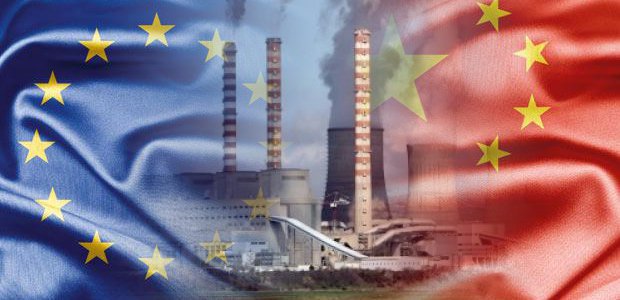Greek energy ministry and main power utility PPC officials appear to be fully aware of concerns in Brussels over warming Greek-Chinese ties for various Greek energy-sector projects, as indicated by additional terms in the recently revised bailout agreement.
These European Commission concerns explain why PPC chief Manolis Panagiotakis remained reserved despite a firm interest expressed by Chinese investors for the Greek energy market during his visit to China earlier this week.
A clause added to the revised bailout, which notes that prospective buyers of PPC units, “based on available information, should neither create any apparent competition problems nor cause delay risks in the implementation of structural measures” could, in one sense, be interpreted as an attempt to obstruct the development of Meliti II and, in addition, block Chinese investors from buying exisiting PPC units and becoming involved in partnerships for the construction and operation of new ones.
PPC and CMEC (China Machinery Engineering Corporation) signed a Memorandum of Understanding (MOU) last September and have held extensive talks on joining efforts for the development of Meliti II, a prospective carbon-fired power station in the Meliti area, close to Florina in Greece’s north.
The Chinese State, which controls CMEC, is also behind SGCC (State Grid Corporation of China), whose agreement to acquire a 24 percent stake in the power grid operator IPTO, a PPC subsidiary, was endorsed by Brussels several days ago. Brussels appears concerned by the prospect of a concerntration of control for the Chinese State.
Pundits told energypress that the additional bailout term will obstruct PPC’s planned collaboration with Chinese companies, a prospect viewed with increased concern by EU member states such as Italy, France and Germany, which, despite their negative stance, have yet to display any clear interest in PPC’s prospective sale of utility units, a bailout requirement.
CMEC, still requiring certain details before making a final decision, appears keen to move ahead with the development of the Meliti II project, sources informed following the PPC chief’s visit to China. The issue may have cleared up within the next month. The future of the nearby Vevi mine, whose coal supply is crucial for existing Meliti I and prospective Meliti II, is a pivotal factor that will influence CMEC’s interest.
Energy minister Giorgos Stathakis recently announced that a new tender will need to be staged for part of the Vevi mine. If so, this could deflate CMEC’s interest in Meliti II.
In China, Panagiotakis, the PPC boss, presented his plans for the development of two more coal-fired power stations, not including Meliti II, in talks with Chinese investors, including the Shenhua and SPIC enterprises.
Shenhua appears interested in becoming involved in environmental upgrades of exisiting PPC power stations and development of new units.





